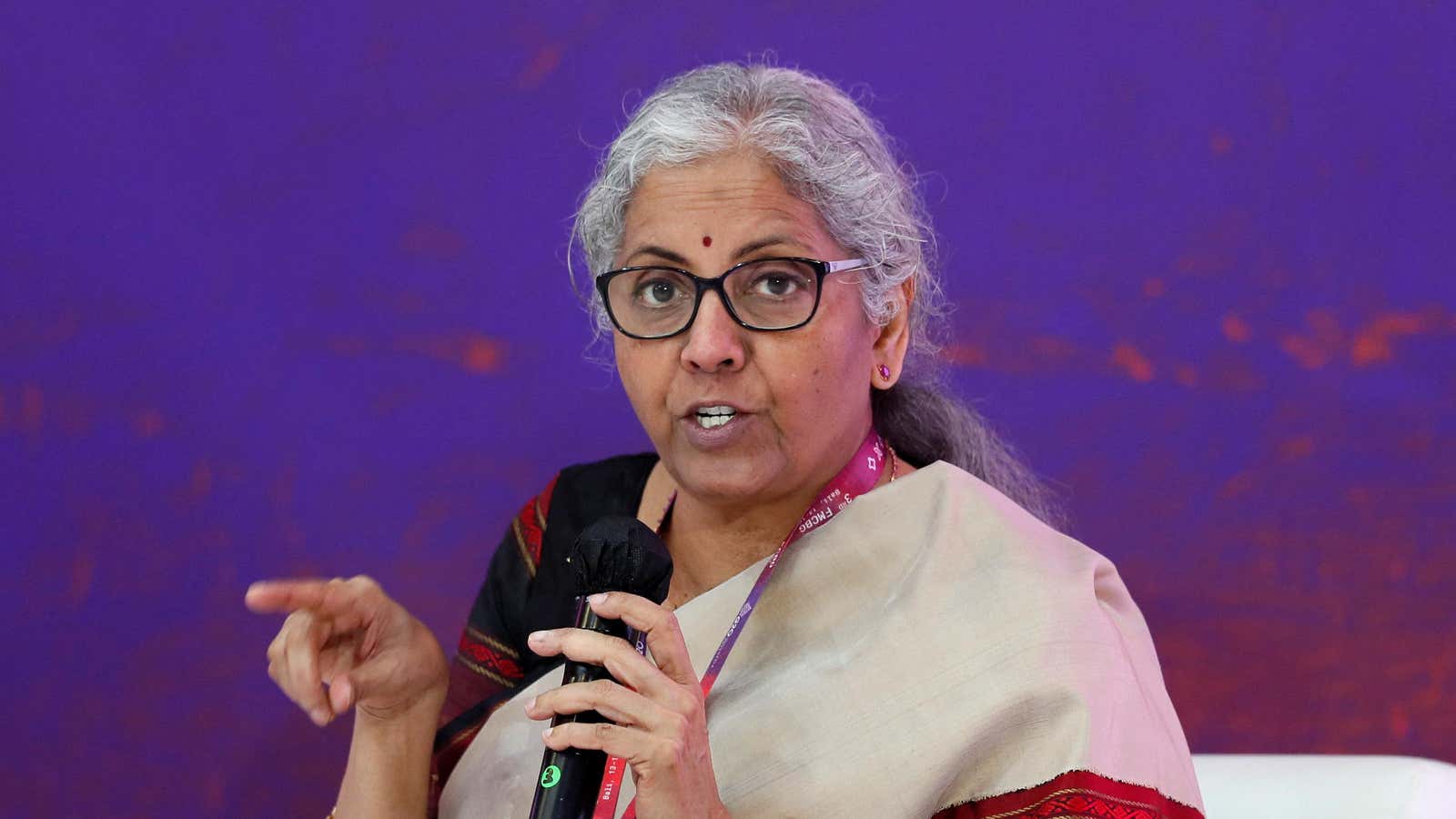India, which has been battling inflation alongside criticism of its Russian ties amid the Ukraine war, has said that Moscow’s supply of heavily discounted crude oil was key to its economy.
India is among the few countries that have not condemned Russia for the invasion earlier this year.
Amid global supply disruptions and price pressure, it plugged its crude oil gaps with Russian imports at a discount of up to $30 per barrel. India’s oil imports from Russia rose “up to 12%-13% within a couple of months,” accounting for only 2% of India’s total crude imports, Reuters reported yesterday.
“I give credit to the statesmanship of the prime minister to make sure globally that we did keep up the relationship with all countries but yet managed to get the Russian fuel, which is what Japan is doing today, which is what some other countries are doing,” Indian finance minister Nirmala Sitharaman said yesterday (Sept. 8) in New Delhi, according to Reuters.
In a similar vein, India’s petroleum minister Hardeep Singh Puri on Wednesday (Sept. 7) said the government has a “moral duty” to safeguard its citizens’ interests.
“We will buy (oil) from Russia. We will buy from wherever...Does a democratically elected government want a situation where the petroleum pumps run dry?” Puri told CNBC in Milan.
India’s inflation conundrum
India’s been battling high inflation—it surged to an eight-year high of 7.79% in April. While there’s been some relief over the past three months, the rate still exceeds the Reserve Bank of India’s (RBI) tolerance band of 2% to 6% as it has for seven months in a row.
Sitharaman said India’s inflation management was “an exercise of so many activities, most of which are outside the [purview of] monetary policy.” She may have hinted at cutting duties on retail fuel sales.
Most states, too, have followed suit.
Besides, the RBI has raised its benchmark interest rate by a cumulative 140 basis points to 5.40% so far in 2022. The finance minister wants more from the central bank, though. It will have to be more synchronised with the government’s fiscal policy and other factors, she said.
Economists believe inflation based on the consumer price index (CPI) may remain elevated due to food prices. Even though Brent crude oil prices have fallen considerably in recent weeks, the reading for August is likely to come in at 6.9%, according to Deutsche Bank.
Fuel items account for as little as 7.94% of the CPI basket; the food component weighs 54.18%.
